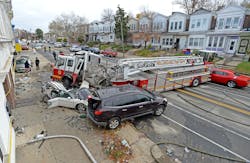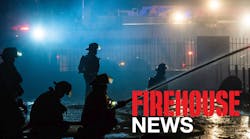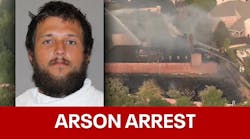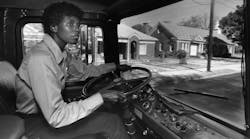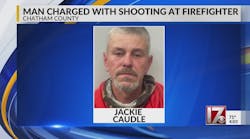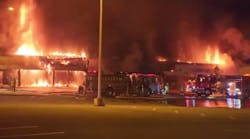As a group, we firefighters enjoy a good deal of community support, both locally and nationally. The public that we protect and serve views us as this nation’s bravest. Back when I started to drive fire apparatus over 40 years ago, there was a period of time when this stature of high regard translated into a public opinion that we could basically do no wrong. We were viewed as white knights slaying the preverbal dragon. Whatever shortcomings we may have had behind the wheel or on the fireground were overlooked. We were that valuable to the community. Well, that was then and this is now. A lot has changed in the last 40 years as it relates to emergency vehicle driving.
Although firefighters are still held in high regard, our shortcomings are no longer ignored. This paradigm shift, in large part, is societal. We have become a very litigious society. At the same time, the public has learned that many fire departments are taxpayer-supported entities with perceived “deep pockets.” Unfortunately, there is a public perception that there are endless supplies of money that can be used to pay off lawsuits brought against these public entities.
Legalese matters
With this in mind, there are several guidelines and legal terms that you need know in order to protect you and your organization from this kind of legal exposure.
There are three types of regulations you must follow:
- Motor vehicle and traffic laws enacted by state and provincial governments
- Local ordinances
- Your department policies
There are three principles of safe emergency vehicle operations:
- Emergency vehicle operators are subject to all traffic regulations unless a specific exemption is made (i.e., “The driver of an authorized emergency vehicle may exceed the maximum posted speed limit so long as he or she does not endanger life or property).
- The exemptions are legal only in emergency mode (emergency lights and siren).
- Even with this exemption, the operator can be found criminally and/or civilly liable if involved in an accident.
Should an accident occur requiring an analysis of your driving by legal authorities, your actions will be judged by those authorities, who will consider at least two points:
- Were you responding to a true emergency?
- Were you driving with due regard for the safety of others?
According to the U.S. Fire Administration Emergency Vehicle Safety Initiative (2014), a true emergency is defined as, “A situation in which there is a high probability of death or serious injury to an individual, or significant property loss, and actions by an emergency vehicle operator may reduce the seriousness of the situation.”
Does every response to which you drive your emergency vehicle rise to the definition of a “true emergency”? No. In fact, a majority of your responses are not true emergencies. If you choose to drive to a non-emergency response with emergency lights and sirens activated and there is an accident, you and your organization could be held civilly and/or criminally liable.
Further, what is due regard for the safety of others? Due regard is based on the circumstances. For example, did you as the emergency vehicle operator give enough notice of your approach? “Enough” is very difficult to define, of course. If a civilian motorist has the windows rolled up, the radio blaring and the air conditioner on, they may take a long time to react to you.
Another example: Did you use the appropriate emergency signaling equipment in accordance with the law? In judging due regard in the use of that emergency signaling equipment, the court will consider the following:
- Was it necessary to use the signaling equipment?
- Were you going to a true emergency?
- Was the signaling equipment actually used?
- Was the signaling equipment audible and/or visible to other motorists and pedestrians?
A common question used to judge due regard is, “Would a reasonably careful man, performing similar duties and under similar circumstances, act in the same manner?” For example, would a reasonably careful man take a 30-ton fire truck through a red light exceeding the posted speed limit and with the risk of striking another vehicle regardless of what the response was for? The answer to this scenario is an overwhelming no, of course, and the driver could be held legally and/or civilly liable.
The last term or definition that you must be aware of is negligence, which, according to the Massachusetts municipal law, is the “failure to exercise the degree of care expected of a person of ordinary prudence in like circumstances in protecting others from a foreseeable and unreasonable risk of harm in a particular situation.” Negligence is also considered a violation of a state-level statute specifically designed to protect the public safety.
There are four elements of negligence:
- Duty: Did you as the emergency vehicle operator have a duty? It is spelled out pretty clearly in the law that you have a duty to drive with due regard for the safety of all the other drivers.
- Breach: Breach of the duty is why you now find yourself in a court of law.
- Causation: Did your driving cause the accident?
- Damages: When you take a 60,000-pound fire truck and hit a 2,000-pound car, we generally cause some damage.
You are not exempt
As a driver operator and a member of the fire department, you never want to end up in a court of law and, therefore, you can never let it get this far. If you or your fire department do end up in a court of law, you can see that any kind of success for the driver operator or the fire department will be minimal at best. These rules are critical to how you will be judged in a court of law. Unfortunately, it has been my experience that a majority of driver operators do not even know that these laws exist, and those who are aware of these rules do not believe that they apply to them or that they are somehow exempt. Make no mistake about it, regardless of whether you are a career or volunteer firefighter, you are not exempt.
What can you do as a chief officer, training officer or driver operator to manage this risk? This article should be the subject of your next company drill. Make everyone aware of the rules, and have meaningful discussions about them. You will find that ignorance of the law is no excuse.
